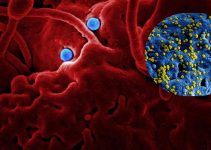Fatty liver is the accumulation of fat in the liver. When this occurs, it can reduce your liver’s ability to function correctly.
The liver is mainly responsible for the breakdown of dietary cholesterol and fats. As this happens, some substances are stored by the liver and body tissues.
Nonalcoholic fatty liver disease
Nonalcoholic fatty liver disease (NAFLD) is an illness in which fat builds up in the liver.
Nonalcoholic fatty liver disease is a usual condition in people who are overweight or obese and don’t drink alcohol.
The nonalcoholic fatty liver disease typically has no symptoms, leading to cirrhosis when it progresses.
The only treatment option for NAFLD is weight loss; it will not resolve spontaneously.
Symptoms of Fatty Liver
Most people who have fatty livers don’t experience any symptoms.
However, several signs and symptoms of fatty liver a person may experience, although not all may be present.
The first symptoms of fatty liver disease are:
- Loss of appetite
- Elevated levels of liver enzymes, including AST and ALT
- Feeling tired and weak
- Some people experience slight discomfort in their right or center abdomen.
- Elevated levels of liver enzymes, including AST and ALT
- High insulin levels
- High triglyceride levels
If a fatty liver worsens into nonalcoholic steatohepatitis (NASH), you may have the following symptoms:
- Lack of appetite
- Nausea and vomiting
- Moderate or intense abdominal pain
- Yellow eyes and skin
What Causes Fatty Liver
High cholesterol, obesity, diabetes, alcohol abuse, and other factors that lead to an increase of fat in the liver are the principal causes of Fatty liver.
The most prevalent causes of fatty liver are chronic alcohol abuse and type 2 diabetes.
What Does Fatty Liver Disease Do to Your Body
Fatty liver disease can do severe damage to the human body. It can cause anemia, increase the risk of developing heart problems, and lead to liver cancer.
The best way to evade those issues is by eating healthy and exercising regularly.
Fatty liver disease has a lot in common with diabetes because it causes blood sugar levels to rise.
People with diabetes must be extra careful because it will make them more prone to developing diabetes type 2 or heart failure and stroke.
Risk Factors for Fatty Liver Disease
Researchers know Fatty Liver Disease is more prominent in people who:
- Drink too much alcohol
- have high triglyceride levels
- have high cholesterol levels
- Are Obese
- Have a diet high in saturated fat and cholesterol
- Have Diabetes
- Have high blood sugar levels
- Age (This is more common in middle-aged people)
- People with polycystic ovary syndrome
- Have high blood pressure
- Have certain infections, such as hepatitis C
- Have metabolic syndrome
- Have high triglyceride levels
- Take certain drugs, such as corticosteroids
Complications from Fatty Liver Disease
The complications that arise from fatty liver disease are mainly in the form of inflammation and liver failure.
Complications of fatty liver disease can include:
- Inflammation
- Liver failure
- Cancerous tumors
- Diabetes mellitus type II
- Cardiovascular diseases
- Cirrhosis
- Liver cancer
Conclusion: What You Need to Know About Fatty Liver Disease
A fatty liver is a severe disease, which can be caused by many factors such as alcoholism, diabetes, or obesity.
The most prevalent causes of fatty liver are chronic alcohol abuse and type 2 diabetes.
If undetected, the accumulation of fat in the liver can lead to inflammation and damage the organ. It can also progress to cirrhosis, kidney failure, and liver cancer with no treatment.
The important thing about this disease is that you should always consult your doctor if you have any symptoms, even if they seem mild – they may be signs of fatty liver disease.





